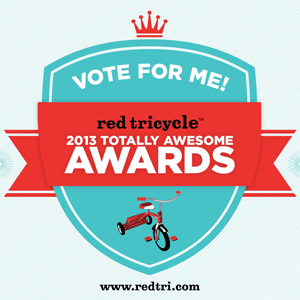After months, I finally saw the film, Food Inc. Wow…..I actually did lose sleep from it….very difficult to do for me as I am up at the crack every morning!
I think everyone should see this film…..why?- because it gets us to think about where we get our food. It also illustrates the alarming rise of obesity and type 2 diabetes- two diseases that have driven health care costs into the billions of dollars. Certainly there was some bias but I felt Kenner did a good job of raising awareness and addressing some of the problems in an enormous industry with powerful political allies.
A couple of points that I thought were glaring:
1. The meat industry makes me want to hurl. Most of the people who might be tempted to see Food, Inc. likely already knew that. But injury rates for workers are high and animals and workers are treated terribly. Competition drives companies to cut corners in order to attract and keep customers. In the food industry, those effects can be pretty bad. Most of us know these things but it is good to actually get a picture of our food source.
“A culture that just uses a pig as a pile of protoplasmic inanimate structure, to be manipulated by whatever creative design the human can foist on that critter, will probably view individuals within its community, and other cultures in the community of nations, with the same type of disdain and disrespect and controlling type mentalities.” Joe Salatin
2. The corn subsidies in the U.S. are off the hook! Those subsidies result in overproduction of corn (and also of High-Fructose Corn Syrup). We know this is not healthy for us and the result is that bad food is more affordable than nutritious food. Politically powerful food companies love the subsidies (since they keep the price of ingredients down) so the food-buying consumer goes on being subjected to all the wrong incentives.
To illustrate this point, Dr. Adam Drewnowski, Director, Nutritional Sciences Program at the University of Washington and world-renowned leader in research for the prevention and treatment of obesity distinguishes between "energy-dense" and "nutrient-dense" foods. For energy-dense, think of a package of Ding Dongs -- 360 calories, 19 grams of fat, and an liberal amount of high-fructose corn syrup. For nutrient-dense, think of a three-ounce serving of wild salmon, delivering high-quality protein and essential fatty acids, among other nutrients, in a 185-calorie package. The former will run you about a buck at any supermarket in the country. For the latter, prepare to shell out $5 (keep in mind that 3oz is not even a ¼ lb) at the Whole Foods fish counter. The Ding Dong is a deal!
According to Drewnowski, cheap and abundant additives such as HFCS allow manufacturers to sweeten food liberally without adding much to their production costs. For people on a tight budget, these additives can also make cheap food the most efficient way to get calories.
So how do we change all of this?…..Well it is up to us. Consumer pressure and the legal system changed the tobacco industry, don’t you think we can change a crappy food industry? For a list of 10 things you can do to change our food system go to:
http://www.foodincmovie.com/food_inc_5x7_v3.html
My favorite character in the film, Joel Salatin, an American farmer, said it best….”You, as a food buyer, have the distinct privilege of proactively participating in shaping the world your children will inherit."
For all of you reading this out there…..your homework is to see Food Inc.
Check out a few reviews:
http://www.msnbc.msn.com/id/31126198/
http://www.time.com/time/magazine/article/0,9171,1904144,00.html


Michele
I saw this film a couple of months ago and it sickened me as well. We try to buy our chicken/meats from farmer’s markets or kosher houses (better conditions for the animals and a clean/humane kill) and we have our own chickens for eggs which taste ten times better fresh from the backyard. My husband, Peter, goes fishing up in the Queen Charlotte islands every year and usually maxes out on halibut and salmon (both wild caught) which keeps our freezer stocked for most of the year. Little changes make a big difference! Our fruit and vegetable gardens sustain most of our needs throughout the summer months as well. Nothing like fresh veggies and fruits right off the vine!